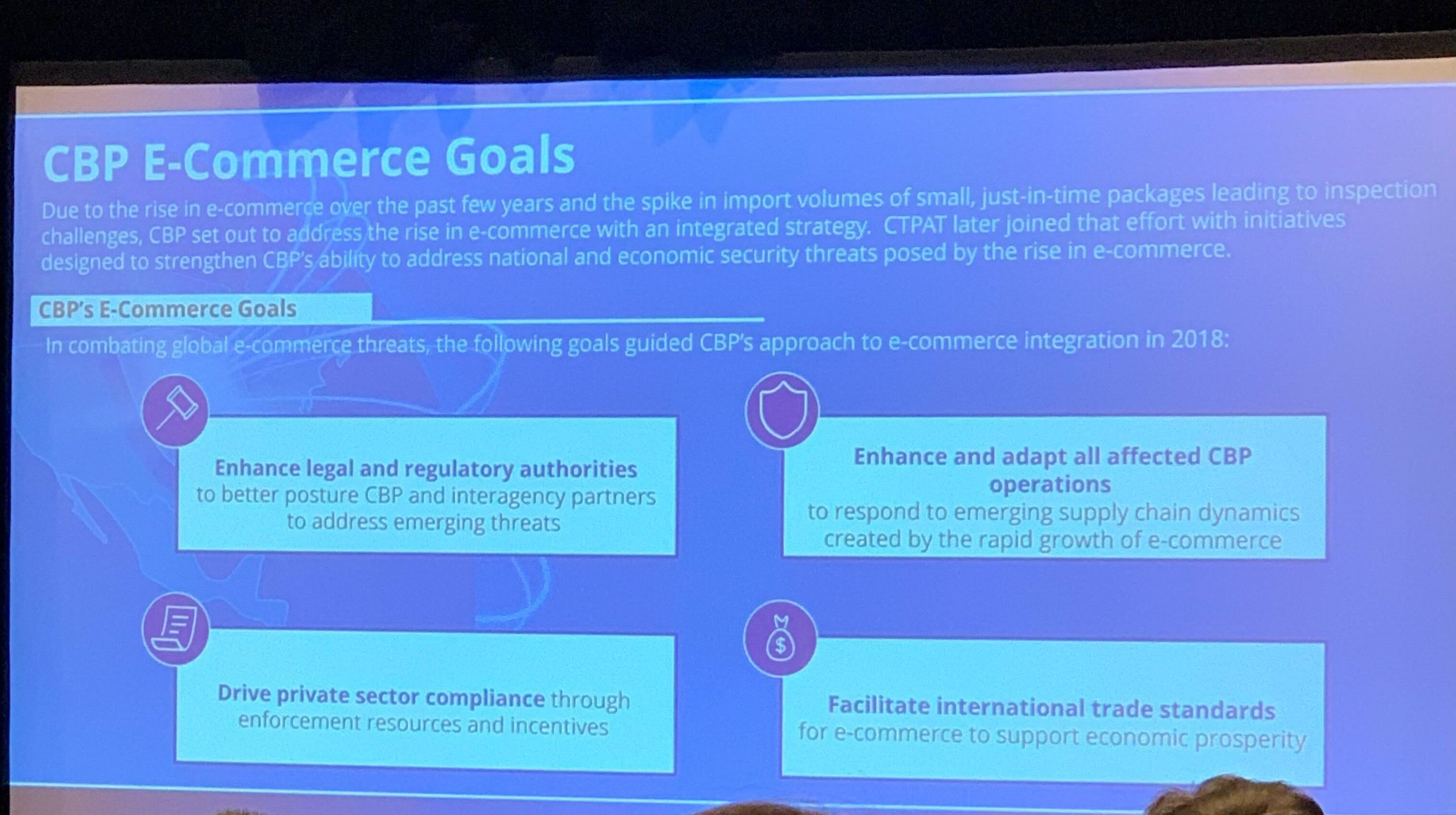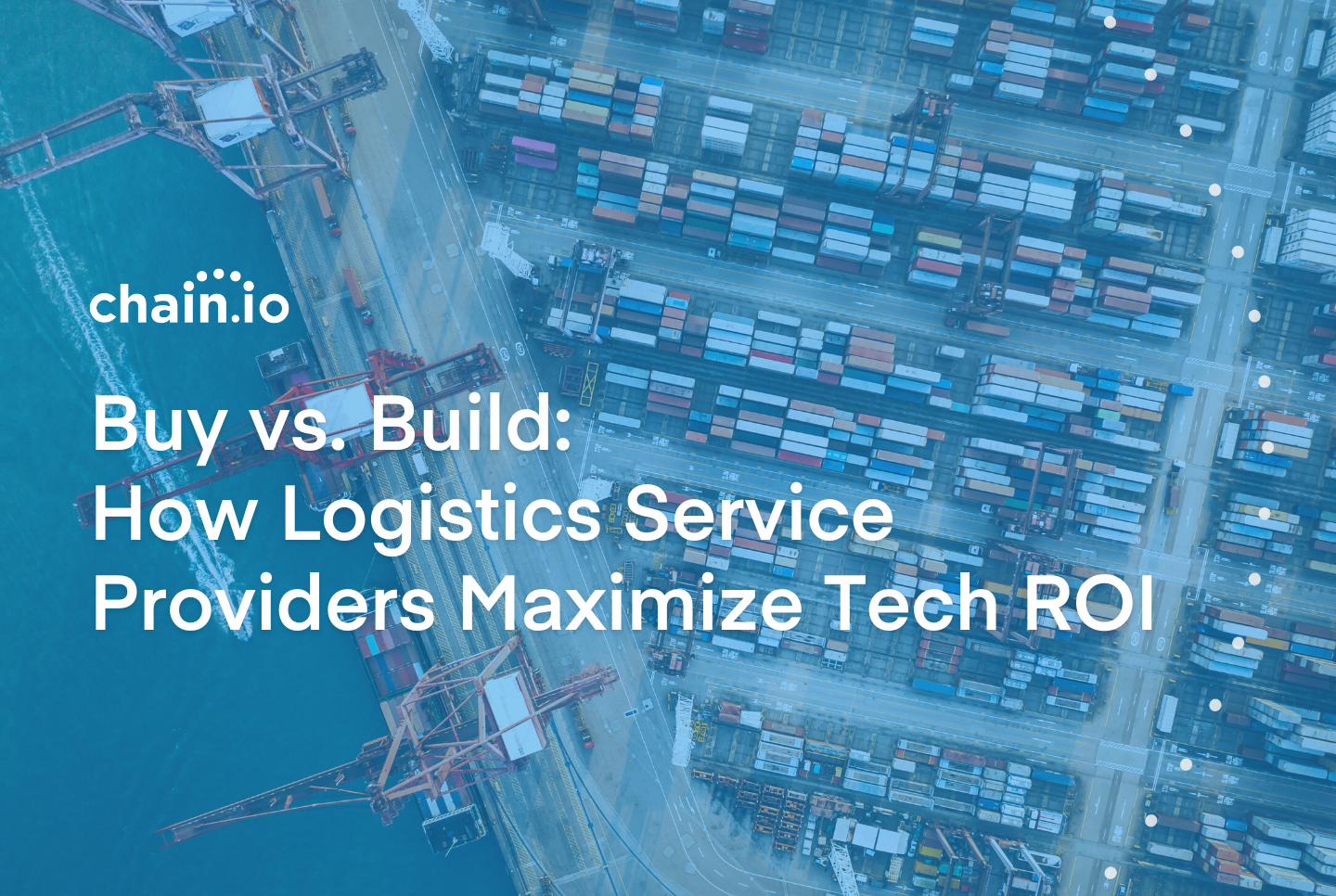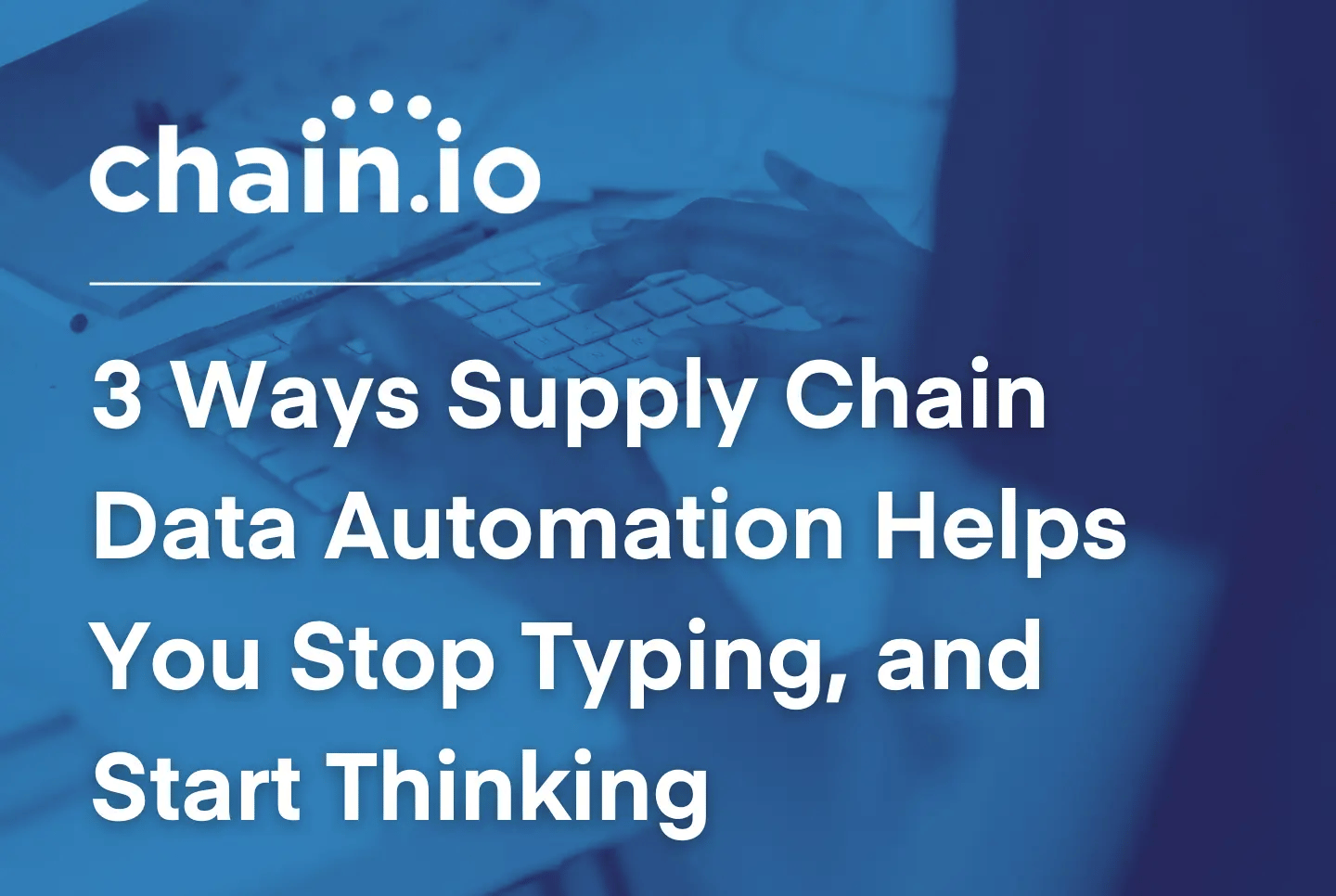
This week, the U.S. Customs and Border Protection (CBP) held the Trade Facilitation and Cargo Security Summit (TFCS) annual event in Boston, bringing together trade community members, government agencies, and the public to hear from CBP personnel and experts on navigating today’s complex supply chain challenges and the latest requirement updates and best practices.
CBP officials gave updates regarding the agency’s priorities, including Uyghur Forced Labor Prevention Act (UFLPA), 21st Century Customs Framework (21CCF), Automated Commercial Environment (ACE) 2.0, E-commerce challenges, and more.

Uyghur Forced Labor Prevention Act (UFLPA)
At the UFLPA Due Diligence session, experts shared their perspectives on forced labor enforcement, as well as the advancements in science, tech, and best practices for their use as elements of supply chain due diligence to detect Forced Labor risks.
The Uyghur Forced Labor Prevention Act (UFLPA) requires CBP to apply the rebuttable presumption unless the importer can overcome the presumption of forced labor by establishing, by clear and convincing evidence, that the good, ware, article, or merchandise was not mined, produced, or manufactured wholly or in part by forced labor.
This elevated standard requires importers to not only use due diligence in evaluation of their supply chain, but also to respond to CBP requests for information regarding entries it may review.
Review Importer GuidanceHow does CBP address Forced Labor?
To prevent merchandise produced in whole or in part in a foreign country using forced labor from being imported into the United States, CBP investigates and acts upon allegations of forced labor in supply chains.
The Human Trafficking Legal Center's June 2020 guide, Importing Freedom: Using the U.S. Tariff Act to Combat Forced Labor in Supply Chains, may be used to help the trade community strengthen petitions to CBP, and is one of several suggested tools to combat forced labor.


21st Century Customs Framework (21CCF)
Also a hot topic at the 2023 TFCS event was the new 21st Century Customs framework. To meet current trade challenges, CBP asserts that transformational reform is needed to protect American workers and business, ensure fair competition, increase transparency and accountability in the supply chain, and enable smooth and safe transportation of goods into the US.
The 21st Century Customs Framework is a strategic initiative that aims to:
- Achieve end-to-end supply chain transparency
- Rely on data driven decision making
- Identify and allocate risk to appropriate parties
Prioritizing Green Trade
According to recent studies, global supply chains may account for as much as 80 percent of the world’s total carbon emissions. During the Green Trade session at TFCS, leaders highlighted CBP’s vision and initiatives to invest in green innovation and infrastructure and deter and enforce natural resource crimes. CBP will begin to incentivize green trade, strengthen their environmental enforcement posture, accelerate green innovation, and improve climate resilience and resource efficiency.


E-Commerce Challenges and Digitization
During the E-Commerce session, we learned how CBP is strengthening its ability to address the increase in e-commerce and the national and economic security threats that E-commerce may pose.
The rise of E-commerce has many brokers playing catchup to keep up with increased shipping of international goods, but digitized operations and logistics technology are helping to lighten that load for brokers.
Across many of the sessions at TFCS, experts stressed the importance of a pivot to digital operations and the need for secure data transfer. Across the customs brokerage community, leaders are beginning to digitize their manual processes of all of the paperwork, bills of lading, and other complex customs requirements that are involved with their shipments.
The Section 321 Data Pilot
In the last 7 years, and driven by a rise in E-commerce, the volume of low value shipments has increased by 410%. CBP is investigating a pilot for a de minimis CTPAT program, which allows small packages valued at $800 or less to enter the United States tax and duty-free.
Learn MoreChain.io Streamlines Customs Operations
It’s clear that finding ways to transmit data securely is more important than ever. As such, leaders are looking for ways that tech can help them decrease their overall risk, share data safely, and further digitize their operations.
At Chain.io, our platform for seamless integrations enables customs brokers and shippers to securely share data, increase visibility and accountability, and have faster reaction times when action is needed.
Customs Operations Integrations
We know that connecting with importers directly allows for the fastest, most accurate customs declarations, and allows your brokers more time to review customs data, reducing risk and improving compliance.
Chain.io’s pre-built adapters connect you directly with your importers so you can leverage electronic data for faster, more accurate customs declarations and improve your overall compliance. Your customers will be even happier with quicker freight release and automated commercial invoice processing.

Ready to learn more?
Next week, we’ll be heading to New Orleans for NCBFAA’s 50th annual conference.
Stop by booth #7,8 or book a time with our team to learn how we’re streamlining customs data and processes for easier imports and better customer experiences.
Book a MeetingExplore Integrations

